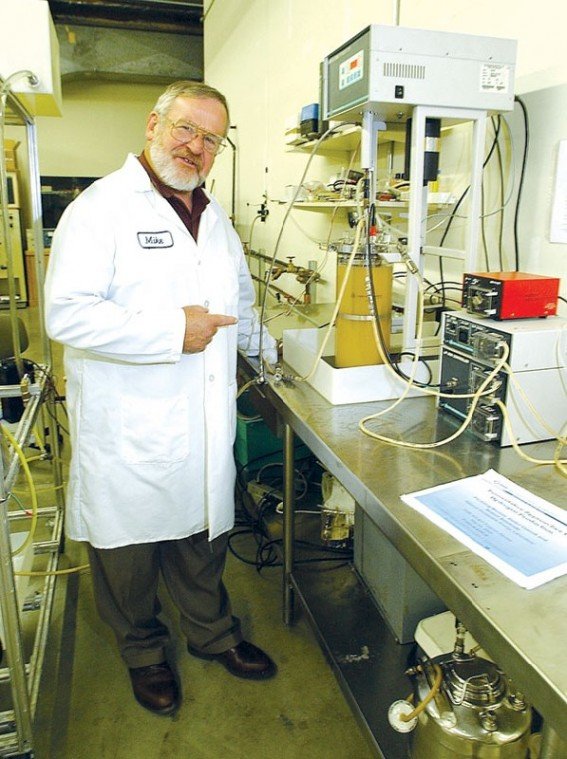Morgan Hill’s Mike Cox says bacteria can create energy
Morgan Hill – Local resident Mike Cox is more than just a scientist – he’s a visionary. He sees a world where garbage can be used to create the energy we need to power our homes, help run our vehicles and abandon our reliance on petroleum. It’s been his life’s work for the last 30 years and now, Cox believes, he has made it a reality.
“It’s all about turning something good out of a bad thing,” he said. Cox, the founder and president of Anaerobe Systems Inc. in Morgan Hill, says he has discovered a process in which anaerobic bacteria synthesize glucose from vegetable matter to create hydrogen – an element that can be burned for energy with no pollution. In layman’s terms, he uses bacteria to turn the sugar from garbage into energy.
“Hydrogen is an energy source,” Cox said. “It’s the number one universal currency in the biological economy,” Through his studies of anaerobic bacteria, Cox said he realized the energy producing potential of common bacteria in the environment.
Though some anaerobes can be harmful and deadly to humans, they also possess the ability to break down chemical compounds into smaller parts.
“In the process of identifying the bacteria, I determined what they can eat and what they can make, and I realized, they can produce hydrogen,” Cox explained.
He estimates that from 10 pounds of sugar gleaned from various vegetable parts, he can create one pound of hydrogen or about 62,000 BTUs – approximately one dollars worth of energy. As he increases the sugar, he can increase the yields and the process takes about six hours for hydrogen production to begin.
Cox said, there are many kinds of anaerobes. It’s identifying the anaerobes that make the hydrogen that’s complicated. He said other scientists have tried and have not been successful.
“What we’re bringing to the party is the knowledge of anaerobes and what they’ll eat and what they’ll make,” said Cox.
The Morgan Hill microbiologist believes enough hydrogen could be produced through his process literally to fuel the world – literally.
Food waste is an inexhaustible resource, he said, and he already has contracted with George Chiala Farms to use waste from their bell pepper business in Morgan Hill.
“I’m excited to be a part of Mike Cox’s project,” owner George Chiala said. “It costs us a lot to dispose of these by-products and send them out in the fields. If we can turn it into a positive thing, I’m all for it. We know it can be done. We’ve tried it in a small scale. We have a great man in Mike Cox.”
Every day, Chiala disposes of 120,000 pounds of bell pepper cores, stems, and seeds.
“That’s energy wasted in the fields,” Cox said. “We can make hydrogen from this.”
Now that he has discovered the process, Cox has moved from the lab to the scale-up process. He plans to set up a pilot plant at Chiala Farms and Anaerobe Systems within the next six months, and if all goes well, the next step is purchasing orders.
Ultimately, Cox envisions a world where farms not only produce food, but also energy. His process will allow the farmers to reduce their waste while creating energy. When the conversion is finished, Cox says, the byproducts are all useful substances. Aside from hydrogen, he says, the bacteria also leaves behind other chemical, including several acids, and the raw elements used to create some plastics.














